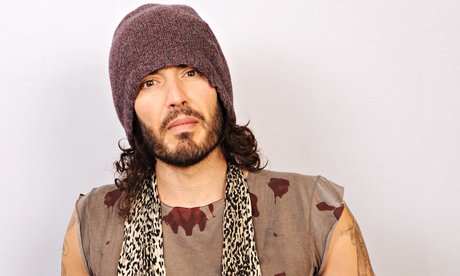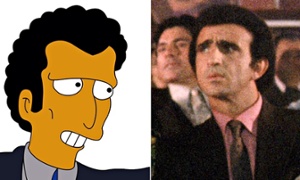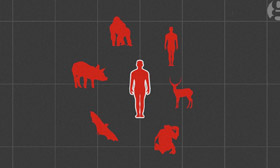This time last year I hosted a Swedish academic who had come to Cambridge to give a talk about Montesquieu. Only she didn't want to talk about Montesquieu. She wanted to talk about Russell Brand. "This Russell" as she called him – a few days earlier she had never heard of him and she couldn't remember his surname – had just given his Newsnight interview to Jeremy Paxman in which he expressed his disgust at the political system and called for revolutionary change by total disengagement. The YouTube clip was already being passed hand to virtual hand among Scandinavian intellectuals like a samizdat copy of Solzhenitsyn behind the iron curtain. The excitement was palpable – at last, someone had said the unsayable. "Is this the moment?" my Swedish friend wanted to know.
- Tell us what you think: Star-rate and review this book
It was not an isolated response. Everywhere I went people wanted to discuss Brand. I gave a series of talks about democracy at not very demotic places such as the Institute for Government and the Royal Society of Arts, and invariably the first question was about Brand and often the last question as well. Was he serious? Was he on to something? Was he right? The students to whom I was trying to teach an introductory course on politics were suddenly much more engaged but also more impatient with the dusty old texts we had been foisting on them. Sensing which way the wind was blowing I switched Brand for Hayek on the course, making do with the 1,000-word manifesto he published in the Guardian, in place of The Road to Serfdom. We all had a lot more fun. The appetite to hear more from Brand was tangible.
Now we have a lot more – the 100,000-word version of the manifesto. Will it generate the same level of excitement? I fear not. There are two problems with this book. The first is timing, which is at least as important in politics as it is in comedy. A lot of the energy around Brand's call to arms has dissipated. Last autumn was his moment, and by going away to write a big book he has squandered some of the opportunity. Something shorter and, above all, quicker would have served his purposes much better. It's not that public disenchantment with mainstream politics has also dissipated – quite the reverse, people are as pissed off as ever. But it is a crowded field of would-be Lenins trying to marshal the troops. A year ago we were living in Russell Brand's world. Now we are living in Douglas Carswell's. Next year, who knows?
Brand's Revolution is heavy going because he seems to have taken the time in order to be serious and earnest, in response to all those people who thought he'd made revolutionary change sound too easy. But the great thing about his Paxman interview is its playful energy, the way he teases the great interrogator and refuses to be baited by demands to spell out the practical details. This book is also light on practical details, but the energy, never mind the playfulness, starts to drain away from page one, where he tells us what was in his mind before he confronted Paxo. He was in the toilet of a London hotel, praying "God, please make me a channel of your peace". He then gives us the whole of the St Francis prayer from which that line comes (the same prayer that the newly elected Margaret Thatcher quoted on the steps of No 10, an irony Brand rather belabours). Brand is a recovering addict, and he presents his call for revolution as a stage on his personal journey of recovery.
That's the other problem – the politics in this book, or rather the lack of them. He insists that transformative change is possible because he has achieved it in his own life. He also knows that change is a collective experience, because he only managed to achieve it with the support of fellow addicts and friends. The book is peppered with references to the recovery process, beginning with the need to believe in a higher power. What Brand doesn't do is explain how the personal translates into the political. Individuals can hit rock bottom and change, but what about whole societies? Though Brand seems to think that neoliberalism is behaving with the kind of hedonistic abandon that characterised his own drink-and drug-fuelled excesses, the truth is that political failure isn't experienced as a self-destructive rampage. It is experienced differently by different people: my rock bottom might be your straitened existence, which might be his comfortable lifestyle. Politics happens in the spaces between personal experiences. It involves taking some people along with you who don't want to change.
Brand lists the 12 traditions of Alcoholics Anonymous as the basis of his political creed. How is this going to work for people who haven't shared the addict's experience? On the other hand, he also lists some sensible practical suggestions in a mini-manifesto for London (and for a possible mayoral run?), things such as "city-wide free Wi-Fi for all residents, subsidised by commercial and financial interests". How is belief in a higher power going to help with that? This book is an uncomfortable mashup of the cosmic and the prosaic. Brand seems to believe they bolster each other. But really they just get in each other's way. He borrows ideas from various radical or progressive thinkers like David Graeber and Thomas Piketty but undercuts them with talk about yogic meditation. He wants us to think seriously about the tax system but also to think in ways that make taxation seem like a speck of dust in the eye of the universe. Perhaps this mix might work if it was leavened with some humour. But for the most part, it isn't.
For a revolutionary tract, Revolution is curiously defensive. Brand spends a lot of time worrying (and assuming) that people will think he's a hypocrite, what with his loved-up Hollywood lifestyle sitting ill with his radical egalitarianism. But hypocrisy is a fact of life in politics and it doesn't pay to worry too much about it. Brand ties himself up in knots saying his lifestyle is not the issue, while castigating other people for their inconsistent values (never trust a judge, he says, because he knew one once who sentenced people for drugs offences while hooked on heroin). He is also paying the price for making his politics so relentlessly personal. The most bizarre section of the book is a hymn of praise to Jimmy Goldsmith, who we are told was a convert at the end of his life to environmentalism (actually my memory of Goldsmith at the end was as the founder of the Referendum party, a nastier precursor of Ukip). Would Brand have written this if he hadn't been sharing his bed at the time with Goldsmith's daughter? Of course it doesn't matter who Brand shares his bed with, so long as he's the one not making an issue of it.
Brand still writes well in bursts – he can be a brilliant short-form journalist. The best bits of this book read like a cheekier version of Martin Amis ("the salty tang and priapic pang" of an oligarch's lifestyle). But too often he sounds like Gwyneth Paltrow without, er, the humour or the self-awareness. The worst of it is beyond parody: "Dear ol' Thomassy Piketts, ol' Piketty, Licketty, Rollitty, Flicketty, has been given a right kicketty by the right wing." At one point he recounts meeting Alastair Campbell and discovering he quite likes the man, despite hating his politics. That's because he recognises a kindred spirit, a recovering addict and someone with "mental-health issues". Fair enough. But then he goes on to say that he connects with Campbell – notwithstanding the Iraq war – because he has been "liberated from the materialistic projections of anatomical humans, who I now see are a refracted projection of one supreme consciousness". If this is a joke, I don't get it. And if it's not a joke, I don't get it.
I know I'm not the target audience for this book. It has been written for people who have given up on politics, who thought it wasn't for them, to persuade them that anything is possible. Brand is right that we are too stunted in our sense of political possibility and too timid in our approach to entrenched power. But his revolution reads like soft-soap therapy where what's needed is something with a harder edge. Brand himself created the space and the appetite for that. It's a real shame he hasn't filled it.
• David Runciman's books include The Confidence Trap: A History of Democracy in Crisis from World War I to the Present, published by Princeton. To order Revolution for £13.50 go to bookshop.theguardian.com or call 0330 333 6846.






















